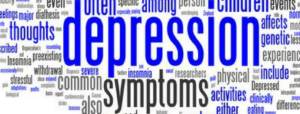Mindfulness is applied to several disciplines and practices such as tai chi, yoga, qigong and so on. But most of these practices focus on mindfulness through meditation. A process that involves a self- regulatory practice done with the aim of bringing the mind under total control and the entire mental process under subjection. Several theories and findings expose the hidden benefits of this act. Researches believe that mindfulness promotes and regulates psychological health, cognitive awareness, calmness, concentration and clarity of the mind.
To be more specific, here are some revealed benefits of mindfulness to the human body.
☯ It reduces rumination: Mindfulness has been known to reduce the rumination of the human mind according to research. The mind tends to be more focused, and attention fixed when the body experiences mindfulness.
☯ Stress reduction: It reduces stress by eliminating anxiety and overwhelmed. When you carry out a mindful meditation, you will be able to put your emotions under control, and this is what eliminated anxiety, depression and other stress factors.
☯ Focus: With careful thinking and meditation, your attention tends to be fixative on a particular subject or feeling. Your mind will be able to suppress all forms of distracting thought and attitude. Due to the high level of focus your entire body engages in during this period, your emotional reactivity will decrease. An outburst of anger, shedding of tears and a wow look on the eyes, are all resultant effect of lack of mindfulness. This can be eliminated during the process of the mindful activity.
☯ Mindfulness aid recovery from illness: It can help you deal with chronic diseases as well as recover from it. According to a recent study, mindfulness has been found to have the ability to aid traumatic growth in cancer survivors.
☯ Can be used to treat depression: Medical practitioners have long used it as an effective means of treating depressed patients. It is responsible for releasing the necessary hormone and cognitive thinking needed for stepping back on bad emotions. According to a study by Barnhofer and Costa. They discovered that unlike a mere imaginary relaxation, mindfulness helped people suffering from depression to gain a more significant emotional regulation and reduce their symptoms subsequently.
☯ Improved general health: aside from it specific benefits, mindfulness also enhances overall health and well being of an individual. A study on mindfulness has revealed that it can develop the cardiovascular activities of the body. It promotes a lifestyle free from smoking, a healthier body mass, and more physical activity. It has also been linked to lower blood pressure due to the concentrating and relaxing effect it has on the mind.
☯ It leads to increased academic success: children too can enjoy the fantastic benefits of mindfulness and not just adults alone. Although this benefit is not reserved for any specific group of practitioners, it has been used to achieve better academic excellence in children and college students.
☯ Boosts resilience and provides support: Mindfulness is very helpful to students and adults who have been in mentally traumatized and suffering from severe mental paralysis. Especially those trying to recover from an illness, or trying to cope with a particular struggle or feeling.
People can learn to manage stress and lead happier, healthier lives.Here are some tips to help you keep stress at bay.
- Keep a positive attitude.
- Accept that there are events that you cannot control.
- Be assertive instead of aggressive. Assert your feelings, opinions, or beliefs instead of becoming angry, defensive, or
passive. - Learn and practice relaxation techniques; try meditation, yoga, or tai-chi
- Exercise regularly. Your body can fight stress better when it is fit.
- Eat healthy, well-balanced meals.
- Learn to manage your time more effectively.
- Set limits appropriately and learn to say no to requests that would create excessive stress in your life.
- Make time for hobbies, interests, and relaxation.
- Get enough rest and sleep. Your body needs time to recover from stressful events.
- Don't rely on alcohol, drugs, or compulsive behaviours to reduce stress.
- Seek out social support. Spend enough time with those you enjoy.
- Seek treatment with a psychologist or other trained in stress management techniques to learn healthy ways of dealing with the stress in your life.
Generalized anxiety disorder (GAD) is more than the normal anxiety people experience day to day. It’s chronic and exaggerated worry and tension, even though nothing seems to provoke it. Having this disorder means always anticipating disaster, often worrying excessively about health, money, family, or work. Sometimes, though, the source of the worry is hard to pinpoint.
Simply the thought of getting through the day provokes anxiety.
People with GAD can’t seem to shake their concerns, even though they usually realize that their anxiety is more intense than the situation warrants — that it’s irrational. People with GAD also seem unable to relax. They often have trouble falling or staying asleep. Their worries are accompanied by physical symptoms, especially trembling, twitching, muscle tension, headaches, irritability, sweating, or hot flashes. They may feel lightheaded or out of breath. They may feel nauseated or have to go to the bathroom frequently. Or they might feel as though they have a lump in the throat.
Many individuals with GAD startle more easily than other people. They tend to feel tired, have trouble concentrating, and sometimes suffer depression too.
Usually, the impairment associated with GAD is mild and people with the disorder don’t feel too restricted in social settings or on the job. Unlike many other anxiety disorders, people with GAD don’t characteristically avoid certain situations as a result of their disorder. However, if severe, GAD can be very debilitating, making it difficult to carry out even the most ordinary daily activities.
GAD comes on gradually and most often hits people in childhood or adolescence, but can begin in adulthood, too. It’s more common in women than in men and often occurs in relatives of affected persons. It’s diagnosed when someone spends at least 6 months worried excessively about a number of everyday problems.
Specific Symptoms of Generalized Anxiety Disorder
Excessive anxiety and worry (apprehensive expectation), occurring more days than not for at least 6 months, about a number of events or activities (such as work or school performance).
The person finds it difficult to control the worry.
The anxiety and worry are associated with three (or more) of the following six symptoms (with at least some symptoms present for more days than not for the past 6 months; children do not need to meet as many criteria–only 1 is needed).
- Restlessness or feeling keyed up or on edge
- Being easily fatigued
- Difficulty concentrating or mind going blank
- Irritability
- Muscle tension
- Sleep disturbance (difficulty falling or staying asleep, or restless unsatisfying sleep)
Additionally, the anxiety or worry is not specifically about having a panic attack (though panic attacks can occur within a person with GAD), being embarrassed in public (as in social phobia), being contaminated (as in obsessive-compulsive disorder), being away from home or close relatives (as in separation anxiety disorder), gaining weight (as in anorexia nervosa), having multiple physical complaints (as in somatization disorder), or having a serious illness (as in hypochondriasis), and the anxiety and worry do not occur exclusively during posttraumatic stress disorder (PTSD).
The anxiety, worry, or physical symptoms cause clinically significant distress or impairment in social, occupational, or other important areas of functioning.
The disturbance is not due to the direct physiological effects of a substance (e.g., a drug of abuse, a medication) or a general medical condition (e.g., hyperthyroidism) and does not occur exclusively during a mood disorder, a psychotic disorder, or a pervasive developmental disorder.

Depression is a common and serious medical illness that negatively affects how you feel, the way you think and how you act. Fortunately, it is also treatable. Depression causes feelings of sadness and/or a loss of interest in activities once enjoyed. It can lead to a variety of emotional and physical problems and can decrease a person’s ability to function at work and at home. Depression is among the most treatable of mental disorders. Between..

Depression is a common and serious medical illness that negatively affects how you feel, the way you think and how you act. Fortunately, it is also treatable. Depression causes feelings of sadness and/or a loss of interest in activities once enjoyed. It can
lead to a variety of emotional and physical problems and can decrease a person’s ability to function at work and at home.
Depression is among the most treatable of mental disorders. Between 80% and 90% of people with depression eventually respond well to treatment. Almost all patients gain some relief from their symptoms.

Depression Symptoms
- Feeling sad or having a depressed mood
- Loss of interest or pleasure in activities once enjoyed
- Changes in appetite — weight loss or gain unrelated to dieting
- Trouble sleeping or sleeping too much
- Loss of energy or increased fatigue
- Feeling worthless or guilty
- Difficulty thinking, concentrating or making decisions
- Thoughts of death or suicide
Symptoms must last at least two weeks for a diagnosis of depression.

Depression Treatment
Before a diagnosis or treatment, a health professional should conduct a thorough diagnostic evaluation, including an interview and possibly a physical examination. In some cases, a blood test might be done to make sure the depression is not due to a medical condition like a thyroid problem. The evaluation is to identify specific symptoms, medical and family history, cultural factors and environmental factors to arrive at a diagnosis and plan a course of action.
Medication:
Brain chemistry may contribute to an individual’s depression. For this reason, antidepressants might be prescribed to help modify one’s brain chemistry. These medications are not sedatives, “uppers” or tranquillizers. They are not habit-forming. Generally, antidepressant medications have no stimulating effect on people not experiencing depression. Antidepressants may produce some improvement within the first week or two of use. Full benefits may not be seen for two to three months. It is important to let your doctor know if a medication does not work or if you experience side effects.

Psychotherapy
Addressing the underlying emotional issues which cause the depressive state is an important component of a full and long-term recovery.

-
Cognitive behavioural therapy (CBT) has been found to be effective in treating depression. CBT is a form of therapy focused on the present and problem-solving. CBT helps a person to recognize distorted thinking and then change behaviours and thinking.

-
Progressive relaxation and hypnotherapy are also often implemented to help the patient manage their stress and anxiety symptoms and the sense of overwhelming.

-
EMDR When depression is a result of abuse or other traumatic experiences.EMDR has proven to be a very effective treatment.

